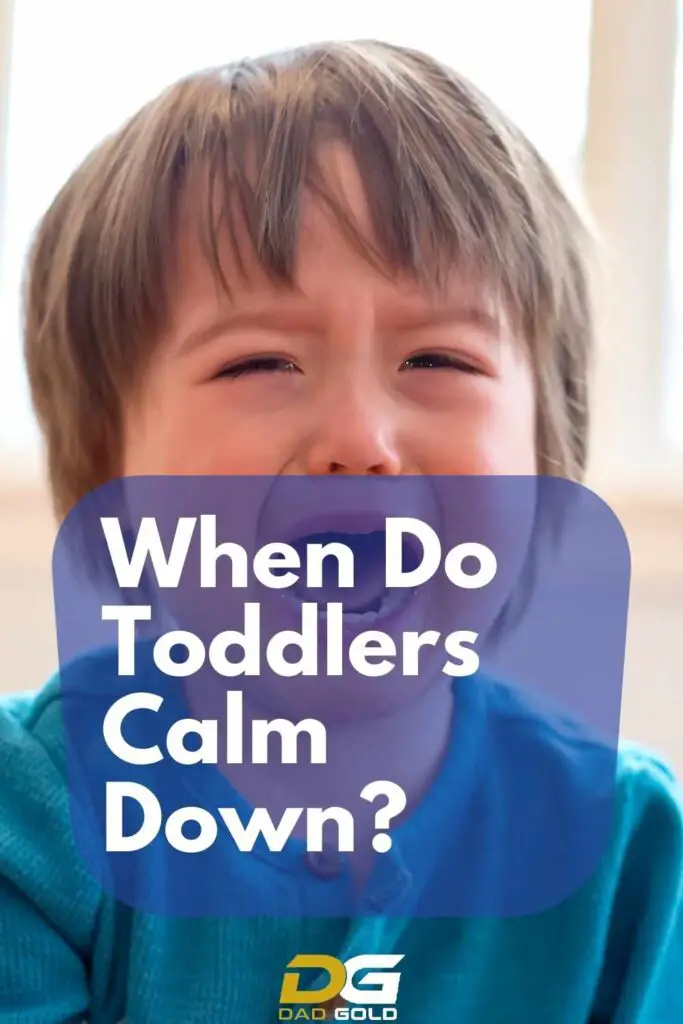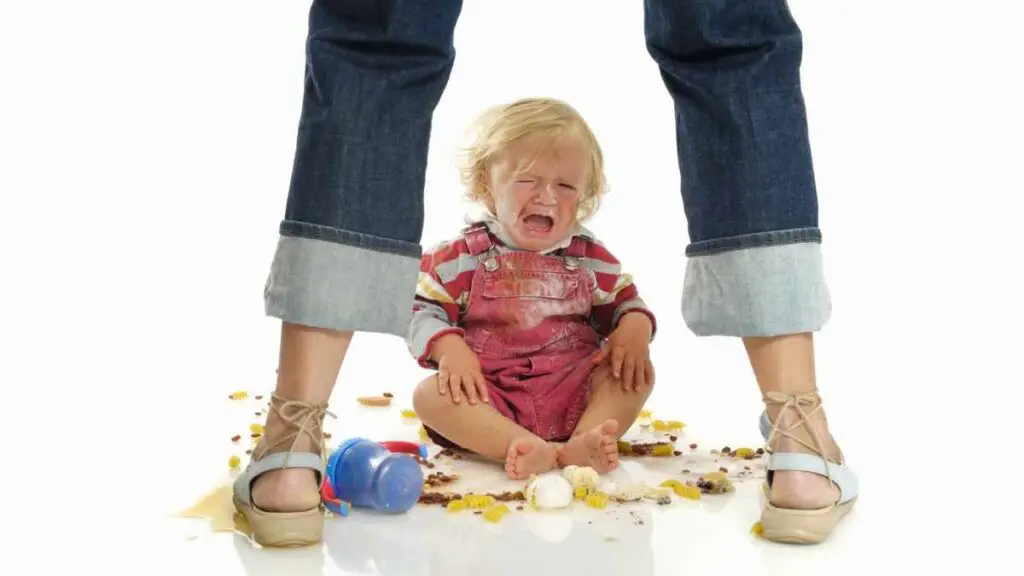If you have a two-year-old child, you may start experiencing bouts of hyperactivity and emotional meltdowns.
Parenting a toddler is not easy!
In this state, your toddler refuses to calm down.
If you’re a new parent, this can be disconcerting. But knowing how and when toddlers calm down will be your key to success.
Toddlers calm down when distracted and engage in other behavior or activity.
But, the most important determining factor between continued drama or calming down is your reaction to their outbursts.
Remaining calm, resourceful, anticipatory, and firm is essential.
Unfortunately, toddlerhood is when a child begins asserting individuality and instigates battles of will and wit against their parents.
-

Bold Male Pride – Baseball Trucker Cap Celebrating Masculinity
£18.00 Select options This product has multiple variants. The options may be chosen on the product page -

Dad Bod Appreciation Gift Mug
£14.00 Add to cart -

Dad Bod, Bad Jokes Structured Baseball Cap
£22.00 Select options This product has multiple variants. The options may be chosen on the product page
Understand this is entirely normal but (somewhat) within your control.
Let’s look at when toddlers are most likely to calm down.

When Do Toddlers Calm Down?

Research suggests that the chances reduce significantly after 42 months.
It shows the following:
- 1 1/2 years to 2 years old: 87% of kids have regular tantrums.
- 2 1/2 years to 3 years old: 91% of kids have frequent tantrums.
- 3 1/2 years to 4 years old: 59% of kids have frequent tantrums.
This research shows that toddlers are likely to calm down after 42 months (3 1/2 years old), which is right at the end of the toddler years!
What You Should NOT Do

Before tackling the terrible twos, understand there are some things you should NEVER do.
Remember, your child doesn’t yet have the same reasoning capacity as you. So, when they begin acting up and out, you must remain compassionate and positive while being consistent, steady, and firm.
- Do not physically punish or be violent. This will never glean the results you seek and will only worsen matters.
- Do not yell over or outdo the outburst. Avoid exerting any amount of negative energies, feelings, or attitudes. Children are intuitive and will pick up on this, worsening the situation.
- Do not taunt or belittle the child. If the experience is bad enough, they will outgrow their terrible twos long before they forget this moment. This can have devastating effects on bonding and trust.
- Only give medications or supplements under the explicit direction of a trusted healthcare professional.
- Avoid a sugary diet for kids. Many problems with tantrums come from foods high in sugar and fructose corn syrup. A spike in blood sugar will impact anyone’s mood.
For Tantrums, Emotional Outbursts; Excessive Crying

Because toddlers can’t use experience and forethought in their decision-making, you must be resourceful when your toddler has an emotional meltdown.
Remember, they are in a transitory period out of babyhood and only beginning verbal communication. Since their vocabulary is limited, you must interpret why they’re upset.
Sometimes, something like their favorite doll or stuffed animal will calm them down immediately. But in other cases, you will have to be more stringent.
This will depend on the situation and why the outburst or tantrum occurs.
Attention Seeking
Tantrums are usually because your toddler doesn’t know how to express displeasure, can’t have their way, or wants attention.
This is a delicate matter because they could have a good reason.
For instance, if your attention is constantly on something else, your child could have a tantrum, or scream, as a communication tool.
However, they could just be hamming it up.
If this is the case, you want to acknowledge the child but don’t want to give in to their demands.
In some cases, this means looking at your toddler but keeping distance; in others, it means ignoring them for a brief period.
You want the child to learn that certain actions and behaviors have consequences and rewards. Positive discipline is a much better approach at all times.
For Hyperactivity

Children are balls of abundant energy that adults often wish they could borrow.
But, if your toddler has never-ending hyperactivity, this can get destructive and unpredictable in ways that you must quell, or this child will run roughshod over you.
Physical Activities – Burn These Kids Out!
Ensure you provide plenty of physical activities to exhaust your toddler’s exuberance. If possible, go to the park, beach, woods, or other wide-open space and let them go as nuts as they like.
They will not only expend all energy (both good and negative), but they will also have a great time doing so. Exercise has been found to improve mood. Therefore, it is likely to aid your toddler’s negative mood.
Intellectual Activities
Use games, books, crafts, peaceful music, calming toys, or logical reasoning with the child. If your child is wildly out of control, begin reading aloud or playing music at a higher volume.
Slightly ignore the toddler while ensuring they are not destroying things or hurting themself.
If your toddler isn’t being unreasonable, set up an intellectually involved game or artistic craft.
When they see and inquire about what you’re doing, say you want to play, but they must calm down first. Be calm and very matter-of-fact about it.
Don’t lift a finger after setup until the child brings themself to a place of tranquility.
Should a 2-Year-Old Go To Timeout?
It depends on your approach to discipline. I opt for positive discipline, which provides good feedback when they do well.
Dealing with a tantrum is a challenge, and there are alternatives to timeout, which will bring a better response.
If your toddler is looking for more of your attention (and you have given them enough already), then there is no reason not to place them in timeout if you have exhausted other options.
Conclusion
Of course, every toddler will be different, and certain situations require a varied approach. But the point is consistency and teaching your child about rewards and consequences resulting from behavior.
Positive discipline will build a positive, respectful child! This starts from a young age.
At the same time, you want to encourage and promote conscious and intentional use of the brain integrated with emotions.
Of course, the right to a tantrum is any toddler’s perogative! They are emotionally unstable pint-sized dictators after all.
Good luck!

